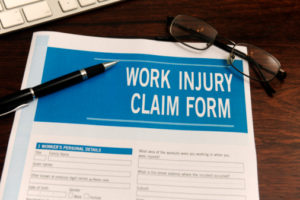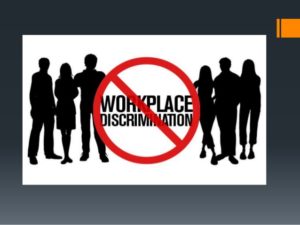by | | Workers' Compensation
You’ve been injured at work and you want to know: Is my injury covered under workers’ comp?

How the accident is described on the claim form may determine whether the claim is covered.
You were injured at work. Your Employer is responsible, right? Your injury should be covered under workers’ comp. Well, maybe. The answer depends on exactly how you were injured.
Injury by accident
North Carolina law defines what type of injuries are covered under the worker’s compensation act. “Injury shall mean only injury by accident arising out of and in the course of employment.” What does that mean? It means for an injury to be covered under workers’ comp, the injury must have happened by accident. So you not only have to have an injury, but you must have an “accident.”*
What’s an accident? Just what you may have thought: an event that was not planned, unexpected, and unusual. An accident can be a fall, motor vehicle accident, a sudden twist, or any deviation from the normal work routine.
It is absolutely critical that someone hurt at work understand the importance of describing an accident to their supervisor or director. When I was a claims adjuster, claims were denied if the individual just described an injury and not an accident. For example, I recall taking a recorded statement from an injury that had a pretty bad knee injury. They had already been to the Emergency Room and there was no question that their knee was hurt. In the recorded statement, they told me that they injured their knee when they were walking down the stairs. They didn’t describe turning, twisting, missing a step, or that their use of the stairs was any different that the other times that they used the stairs. The person was injured but that’s not an accident and the claim was not covered under workers’ comp.
As a workers’ comp attorney, I make sure my clients understand the difference between an injury, and an injury by accident.
If you’ve been injured at work, but not sure if it was an accident, or would like more information on whether your injury is covered by workers’ comp., please contact my office to discuss.
*For more information, see my practice area page on workers’ comp.

by | | Аttorneys
Brian Elston selected to the 2017 Super Lawyers
Attorney Brian Elston is honored to be named to the 2017 North Carolina Super Lawyers Rising Star List. A “Super Lawyer” is a distinguished group of attorneys from around the state honored each year for their expertise in various areas of the law. No more than 2.5 percent of attorneys statewide are selected annually for Rising Stars.
Brian Elston credits the nomination based on a determined legal approach that also earns the respect of his colleagues. Brian has appeared in over 35 counties, district and superior court, in federal court, and the NC Industrial Commission. Opposing counsel recently summed up his approach by stating that when he sees Brian on the other side, he checks his file one more time just to make sure he’s not missing anything.
Brian represents individuals in workers’ compensation, personal injury and civil litigation matters. His focus is advocating for clients damaged due to the negligence or wrongful acts of another.
Brian Elston Law is located in Asheville and accepts referrals in the fields of workers’ compensation.

by | | Workers' Compensation
What are my work place rights?
Americans can thank Dr. Martin Luther King for his work and efforts in securing their work place rights. Dr. King raised awareness and put political pressure on members of Congress to protect individuals from discrimination and provide equal work place rights.

Dr. King speaking with the President
During the early sixties, there were four landmark pieces of legislation that were passed:
- Civil Rights Act of 1964
- Voting Rights Act of 1965
- Immigration and Nationality Services Act of 1965
- Fair Housing Act
In regards to work place rights, the Civil Rights Act created the Equal Employment Opportunity Commission to enforce federal laws prohibiting race and sex discrimination in employment.
Here is a quick look at the Act and an employee’s work place rights:
What is the law?
The ultimate purpose of Title VII of the Act is to “eliminate discriminatory practices in employment.” NC Dept. of Corr. v. Gibson, 308 N.C. 131 (1983). Initially the Civil Rights Act bans discrimination on account of race, religion, sex or national origin.

Civil Rights Act prohibits discrimination in the work place
The Act has been supplemented by additional acts, and an employer cannot discriminate based on:
- Race
- Religion
- Sex (which also includes sexual harassment)
- National Origin
- Pregnancy (enacted by the Pregnancy Discrimination Act)
- Age (enacted by the Age Discrimination in Employment Act)
- Disability (enacted by the Americans with Disability Act)
(Note: there are other federal laws the provide work place rights, such as protection from retaliation due to whistleblowing, protection for filing a workers’ compensation claim, etc. These laws are not addressed in this article.)
Title VII also prohibits discrimination against an individual because of his or her association with another individual of a particular race, color, religion, sex, or national origin, such as by an interracial marriage.
Who is protected?
The EEOC enforces federal anti-discrimination laws against employers that have more than 15 or more employees. The EEOC enforces that Age Discrimination in Employment Act against employers that have 20 or more employees.
If my work place rights have been violated, what can I do?
First, before heading to the courthouse, check to see if your employer has a complaint or grievance policy. In certain cases, it is mandatory that an employee first go through the employer’s administrative process before filing a lawsuit.
As a practical matter, an employee should document every conversation or email. Employment disputes are heavily fact oriented, and it not uncommon for there to be a dispute over the facts.
Contact the EEOC or consult an attorney?
Although Dr. King has passed, his dream of ensuring equal rights for all employees lives on. The law is constantly changing. (e.g. North Carolina Legislation on HB2). If you believe that your work place rights have been violated, you can contact the EEOC and request that they investigate the claim, or contact my office in order to address whether your rights have been violated.
by | | Personal Injury
North Carolina allows a unique class of claims called “Heart-Balm” torts. As the name suggests, these claims deal with injuries of the heart in a spousal relationship – most often where one spouse has committed adultery. No statute defines these claims. They have existed for over a hundred years in North Carolina case law. There are two claims that fall under this classification.
The claim of “Criminal Conversation” may be brought by a spouse against one who has had sexual relations with the plaintiff’s spouse. This sexual encounter must have occurred prior to any sort of “physical separation” of the plaintiff and his/her spouse, where that separation was intended by either spouse to remain permanent, such as where a married couple moves in to separate homes. That’s it. A single act of sex will allow the plaintiff to recover. It is not necessary that the spouse’s lover even known they are married. Recoveries have ranged into the hundreds of thousands of dollars.
The second claim, “Alienation of Affection” forms a basis for recovery where a third-party has interfered with a spousal relationship such that the love and affection that once existed between husband and wife is ruined by the acts of the third-party. A plaintiff must establish that there was a genuine loving and affectionate relationship that existed prior to the actions of the third-party. Then, they must prove that this genuine marital relationship was alienated – meaning the destruction of the love and affection that existed between the spouses. Finally, plaintiff must show that the cause of this alienation was the malicious acts of the third-party. Sex outside of the marriage is not required to prove Alienation of Affection, but it is an influential factor. In fact, this claim has been used to litigate against a spouse’s family members who have interfered with the spousal relationship, though evidence must be pretty extreme in such cases.
The “Heart-Balm” torts in North Carolina add a new layer to divorce and domestic claims. If you think you may be affected by these claims, contact me today.

by | | Personal Injury
Who’s injured and who’s at fault can make a difference
Here’s an all too familiar situation: someone injured in a motor vehicle accident calls my office. Medical bills are piling up and they aren’t getting better. They receive a phone call or letter from the insurance company that states the claim is denied. The reason? The insurance company states that the person injured in a motor vehicle accident was also at fault. But, what about the injury?
Contributory Negligence
Contributory negligence is defined as the failure to exercise due care for one’s own safety. A reasonably prudent person under the circumstances would remove their headphones and/or look both ways before crossing the street. In North Carolina, Contributory Negligence is a complete defense to suit where contributory negligence was a proximate cause of the injury. This means that if your conduct was the factual cause of your injuries, and the risk of such injury was reasonably foreseeable, you cannot recover.
However, there is a very important exception that may be available to those injured in a motor vehicle accident: the doctrine of last clear chance.
The “Last Clear Chance” doctrine imposes a duty upon the driver in the above example to exercise ordinary care to avoid injuring you, one who has negligently placed himself in a situation of danger.
For example, if the driver sees you walking in the road way, oblivious to his blaring horn, and he can avoid hitting you, he has a duty to do so. If the driver fails to avoid you when he could have, then he can still be held liable, even though you were at fault for failing to take care to avoid injury to yourself.
Additional exceptions exist to the general rule in North Carolina that one who is contributorily negligent may not recover. Contact my office for a free consultation regarding your situation.

Sharing fault can make a difference







